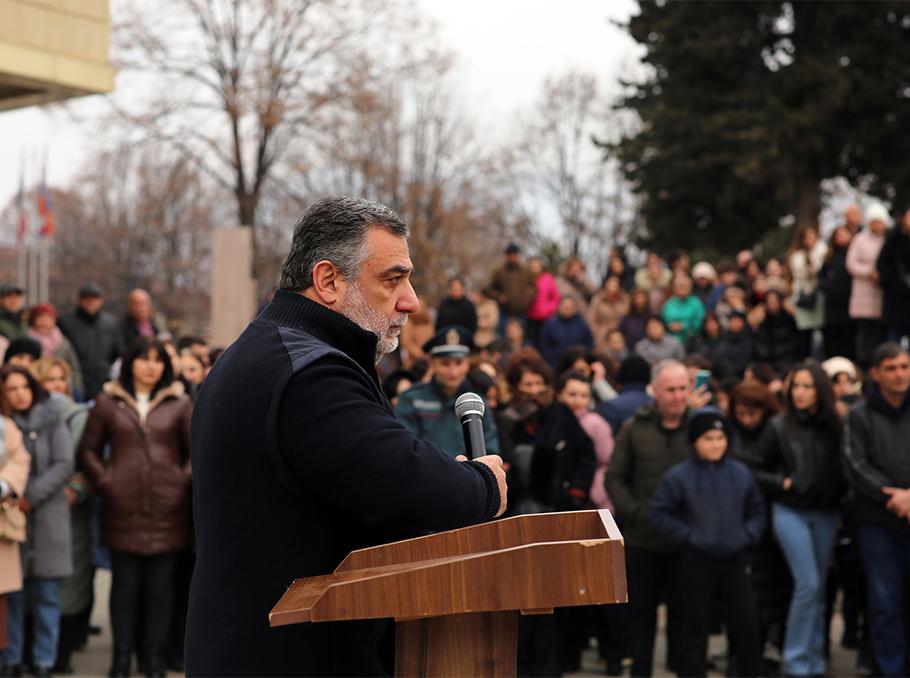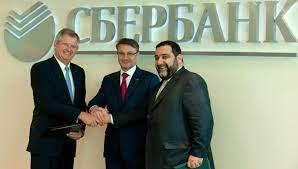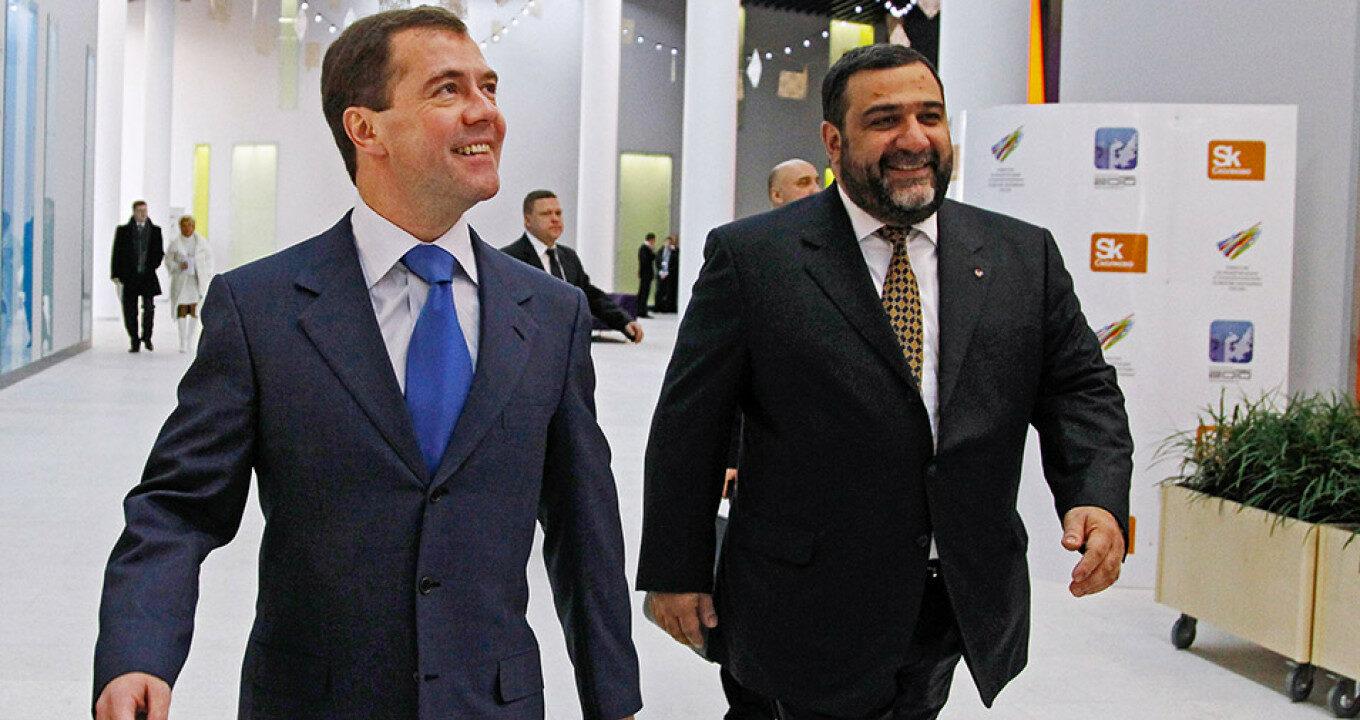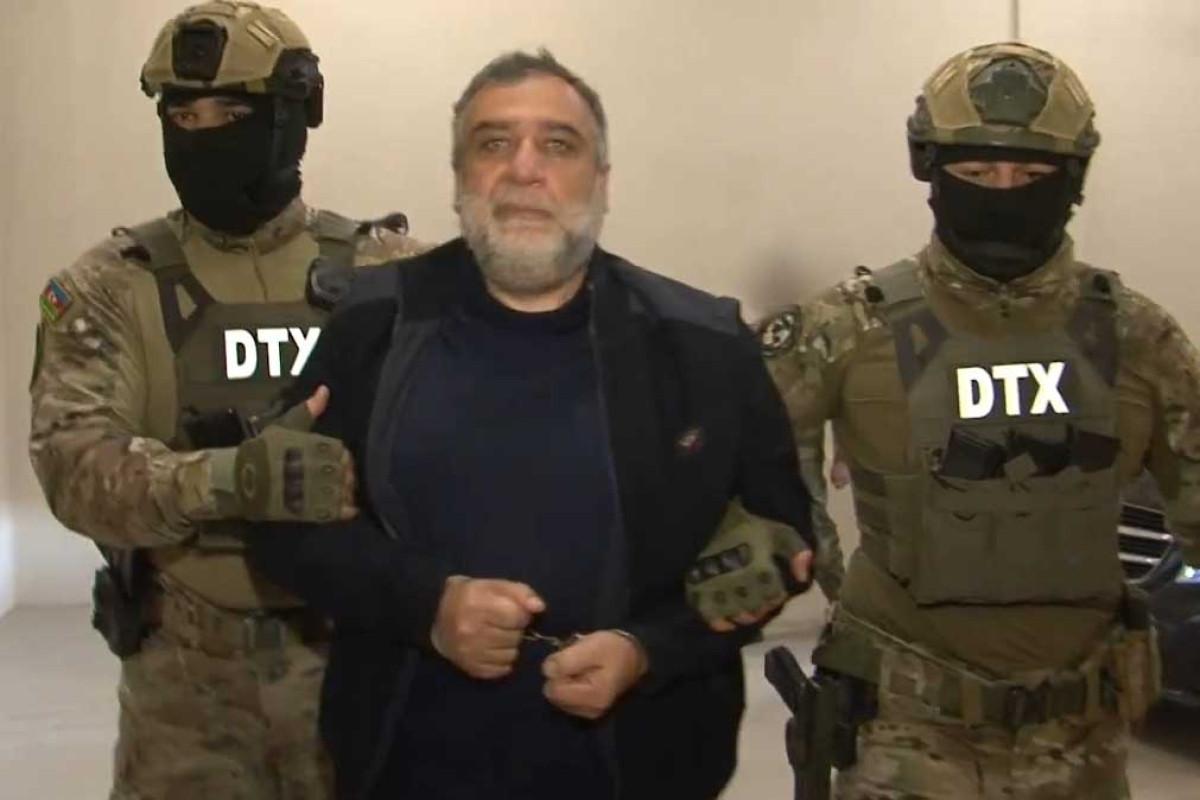Controversial Nobel Peace Prize nominee Vardanyan faces int’l scrutiny & opposition A closer look at actions contrary to peace & humanitarian efforts
The April 8, 2024, announcement of wheeler-dealer businessman Ruben Vardanyan's Nobel Peace Prize nomination sparked both intrigue and skepticism within circles familiar with his controversial history and questionable actions.
Vardanyan's bad business practices in Russia and illegal activities in Azerbaijan's former separatist region of Karabakh, where he was propelled by figures associated with the pro-Kremlin establishment, cast doubt on his professed dedication to fostering peace and stability in this region of Azerbaijan, despite his repeated claims to the contrary.
Ruben Vardanyan, a slyboots Russian businessman of Armenian descent, once more captured the spotlight as reports surfaced of his nomination for the prestigious Nobel Peace Prize by an undisclosed group. The nomination highlighted his purported efforts in "advancing peace initiatives" and addressing "humanitarian crises" in the once conflict-stricken region of Karabakh.

Nonetheless, the identities of those behind this initiative remained veiled in secrecy, giving rise to valid inquiries regarding the transparency and legitimacy of the nomination process. Such opacity prompts justified skepticism regarding the grounds for his nomination, particularly considering his checkered past, which echoes with misdeeds, irregularities, and disrespect for Azerbaijani laws.
Ukraine sees eye to eye with Azerbaijan
In fact, this conclusion has not only been drawn by Azerbaijan but also by Ukraine and numerous other foreign parliaments and human rights organizations familiar with Ruben Vardanyan's involvement in money laundering and schemes he orchestrated and executed through various banks.
The nomination of Vardanyan for such a prestigious honor immediately drew scrutiny, given his track record in the Karabakh conflict. Contrary to the narrative propagated by the initiative group, Ruben Vardanyan's involvement in peace initiatives appears dubious at best and triggers bewilderment.
Instead of advocating for reconciliation and peaceful coexistence, Ruben Vardanyan's actions often fanned the flames of discord and hostility in the region. His vocal support for Karabakh separatists’ independence drive from Azerbaijan and his disregard for constructive dialogue with Baku to hammer out the conflict bloodlessly undermined the prospects for lasting peace and compelled the government to take the law into own hands and cut the Gordian know militarily once and for all.
One notable instance underscoring the businessman's divisive role in the conflict occurred during Azerbaijan's anti-terror operations in September 2023. These operations, deemed necessary by the Azerbaijani government to restore law and order in the region, were a direct response to the destabilizing influence of figures like Vardanyan, who persistently rejected opportunities for peaceful resolution and instead incited further unrest through his overt and covert activities rallying his huge network ready to serve even the demon in exchange for money.

Vardanyan's brief stint as a self-proclaimed "minister" in the then-separatist government of Karabakh only exacerbated tensions. Rather than facilitating dialog and cooperation, his actions served to perpetuate the cycle of conflict and hinder efforts towards reconciliation.
Furthermore, Ruben Vardanyan's involvement in illicit financial activities, as highlighted in investigations such as the Organized Crime and Corruption Reporting Project's expose on the "Troika Laundromat," raises serious questions about his integrity and motives. The revelation of his alleged role in money laundering schemes casts doubt on the sincerity of his purported commitment to peace and humanism.
Ukraine objects to Ruben Vardanyan's Nobel Peace Prize nomination
Driven by a commitment to impartiality and the pursuit of media accuracy, the substantial arguments put forth by Ukraine serve as compelling evidence supporting Azerbaijan's objection to the nomination process.
Ukraine, along with various other international entities, has raised concerns regarding Ruben Vardanyan's involvement in money laundering activities and the intricate schemes he orchestrated through multiple banking channels.
These concerns not only question the integrity of Ruben Vardanyan's nomination but also underscore broader doubts about his suitability for such a prestigious recognition. As such, Ukraine's stance adds weight to Azerbaijan's reservations, amplifying calls for a thorough examination of his background and actions before any decisive steps are taken in the Nobel Peace Prize nomination process.
Reports of Ruben Vardanyan's nomination for the Nobel Peace Prize have also sparked strong opposition from Ukrainian lawmakers. Members of the Verkhovna Rada have voiced their concerns, citing Vardanyan's involvement in activities detrimental to Ukraine's interests.
Key points raised against Vardanyan's nomination include:
Support for Russia's aggression: Vardanyan is accused of providing support and financial backing for Russia's actions against Ukraine, including its ongoing conflict in the region.
Accomplice in crimes: Ukrainian lawmakers assert that Vardanyan acted as an accomplice in the crimes committed by the Russian government against Ukraine and its citizens.
Previous sanctions: In 2022, a significant number of members of the US Congress voted in favor of imposing personal sanctions against Ruben Vardanyan. Similarly, in 2019, 22 members of the European Parliament advocated for sanctions against him as an accomplice of the Kremlin.

Media characterizations: Several well-known international media outlets, including Politico, Town Hall, The Washington Times, The Hill, and Al Jazeera, have labeled him as aligned with the Kremlin.
The primary source of news regarding Vardanyan's nomination, RBC, is a Russian media channel owned by Grigory Berezkin, who himself has faced sanctions for his alleged ties to the Kremlin.
Ukrainian lawmakers argue that it is inconceivable to nominate an individual for such a prestigious international award when they are implicated in supporting separatism, terrorism, and corruption scandals, as well as sponsoring aggression against Ukraine.
They call upon the Nobel Committee to reject the nomination based on these grounds, emphasizing that honoring someone with such controversial associations would undermine the credibility and integrity of the Nobel Peace Prize.
Conclusion
In light of these revelations, the decision to nominate the Russian magnate for the Nobel Peace Prize appears misguided and disingenuous. It suggests a disregard for the principles of transparency and credibility that should underpin such prestigious honors. Instead, it raises concerns about the potential influence of wealth and connections in shaping international recognition.
Also, his nomination for the Nobel Peace Prize reflects a troubling trend wherein individuals with questionable credentials and motivations are thrust into the spotlight. Rather than advancing genuine peace initiatives, Vardanyan's actions in the Karabakh conflict only served to exacerbate tensions and perpetuate instability.

As such, his suitability for recognition in the realm of peacebuilding is highly questionable, highlighting the need for greater scrutiny and accountability in the nomination process.








